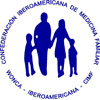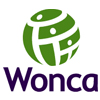Nunavut well-baby record: modifying a standars tool for remote indigenous population
Resumo
Objetivos: To describe the development, content, and use of the Nunavut Well-Baby Record (Nunavut WBR). The Nunavut WBR is a modification of the Rourke Baby Record (www.rourkebabyrecord.ca), a validated evidence-based system for well-baby/child care from 1 week to 5 years widely used in Canada.
Metodologia ou Descrição da Experiência: To understand and improve early child health outcomes, the Government of Nunavut, with the University of British Columbia, initiated the development of a comprehensive maternal/child health information system, the Nutaqqavut (Our Children) Health Information System (NHIS). Careful assessment of local needs, including health care provider and lay stakeholder meetings with community involvement from key organizations (Nunavut Tunngavik Inc., Qaujigiartiit Health Research Centre), established broad support, and continues to contribute to database development, protection of privacy, potential data utilization for health promotion, and plans for dissemination of findings.
Resultados: A series of small working groups decided on prenatal, perinatal and early child health variables to be documented from 16 weeks gestation to age 5 years. With permission and input from the authors, the Rourke Baby Record was modified to include "Nunavut specific" variables of nutrition, food and domestic security, birth defects, TB exposure, paternal information, and chronic childhood diseases such as lung infections, seizures, and hearing loss. The Nunavut WBR enables data collection at 2, 6, and 12 months, 2 - 3 and 4 - 5 years of age, which is a significant component of the NHIS.
Conclusão ou Hipóteses: The Nunavut Well-Baby Record is a modification of a standard validated tool for a remote indigenous population in Canada‘s arctic. It is part of the NHIS, a larger initiative to help understand maternal/child health determinants, advance intercultural competence, and improve the health of Nunavut’s children. The model is adaptable to other community and public health systems.
Palavras-chave
Texto completo:
PDF (English)Apontamentos
- Não há apontamentos.
Este periódico é de responsabilidade das associações:
Apoio institucional:







